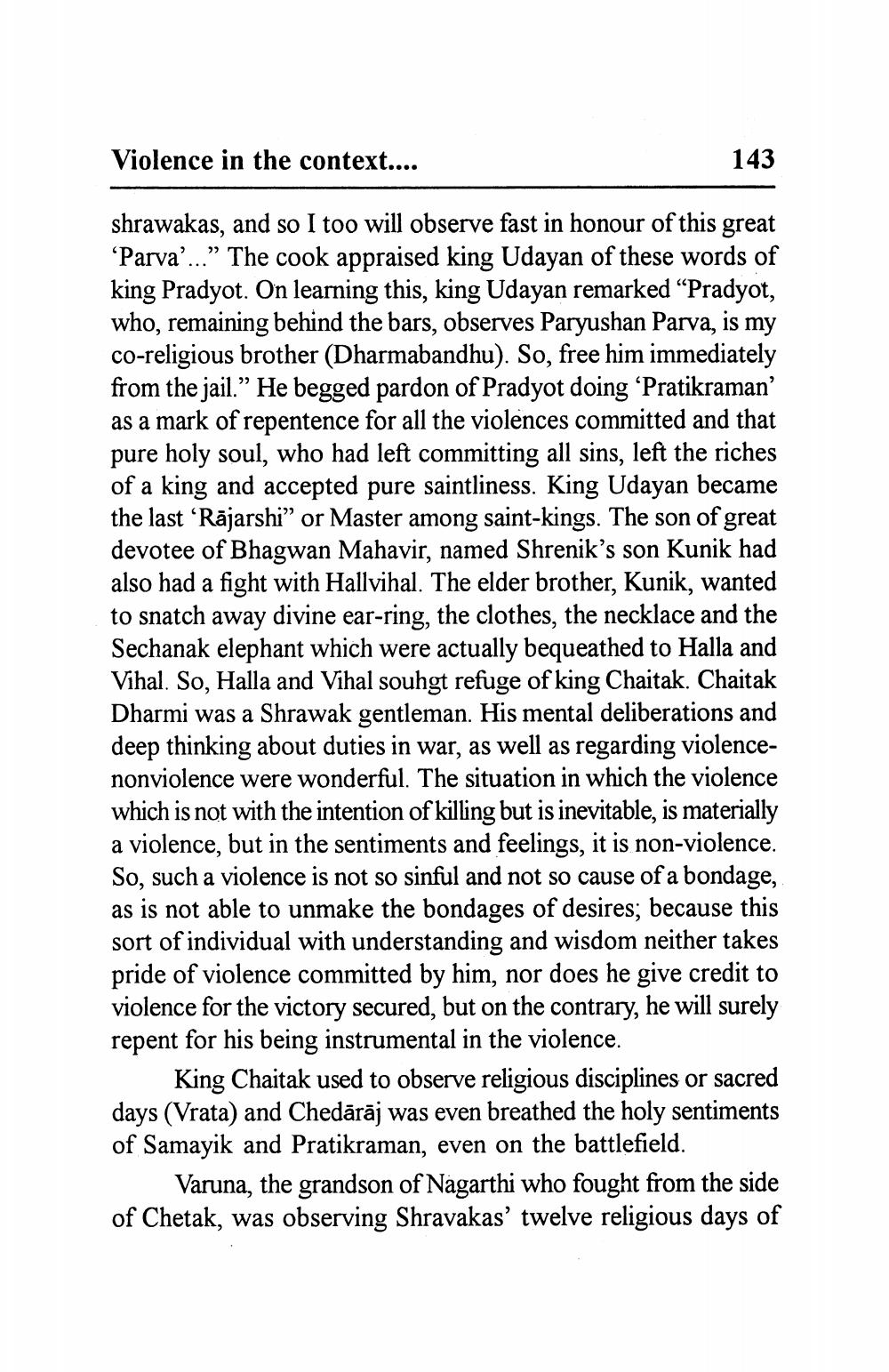________________
Violence in the context....
143
shrawakas, and so I too will observe fast in honour of this great ‘Parva'...” The cook appraised king Udayan of these words of king Pradyot. On learning this, king Udayan remarked “Pradyot, who, remaining behind the bars, observes Paryushan Parva, is my co-religious brother (Dharmabandhu). So, free him immediately from the jail.” He begged pardon of Pradyot doing ‘Pratikraman' as a mark of repentence for all the violences committed and that pure holy soul, who had left committing all sins, left the riches of a king and accepted pure saintliness. King Udayan became the last ‘Rājarshi” or Master among saint-kings. The son of great devotee of Bhagwan Mahavir, named Shrenik's son Kunik had also had a fight with Hallvihal. The elder brother, Kunik, wanted to snatch away divine ear-ring, the clothes, the necklace and the Sechanak elephant which were actually bequeathed to Halla and Vihal. So, Halla and Vihal souhgt refuge of king Chaitak. Chaitak Dharmi was a Shrawak gentleman. His mental deliberations and deep thinking about duties in war, as well as regarding violencenonviolence were wonderful. The situation in which the violence which is not with the intention of killing but is inevitable, is materially a violence, but in the sentiments and feelings, it is non-violence. So, such a violence is not so sinful and not so cause of a bondage, as is not able to unmake the bondages of desires; because this sort of individual with understanding and wisdom neither takes pride of violence committed by him, nor does he give credit to violence for the victory secured, but on the contrary, he will surely repent for his being instrumental in the violence.
King Chaitak used to observe religious disciplines or sacred days (Vrata) and Chedārāj was even breathed the holy sentiments of Samayik and Pratikraman, even on the battlefield.
Varuna, the grandson of Nagarthi who fought from the side of Chetak, was observing Shravakas' twelve religious days of




